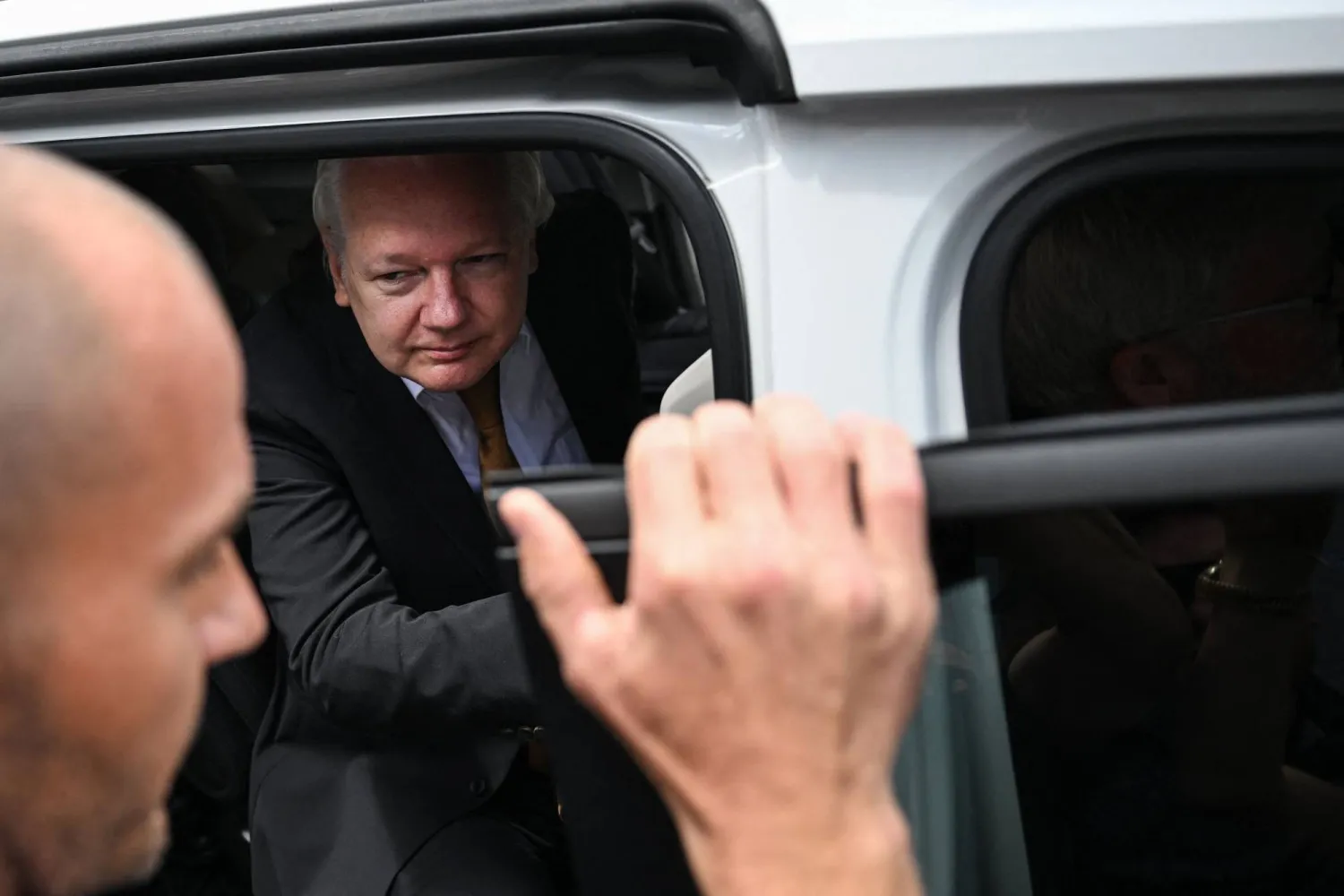WikiLeaks founder Julian Assange landed in Australia on Wednesday to an ecstatic welcome after pleading guilty to violating US espionage law in a deal that sets him free from a 14-year legal battle.
Assange disembarked from a private jet at Canberra airport just after 7:30 p.m. (1130 GMT), waving to waiting media before passionately kissing his wife, Stella, and lifting her off the ground.
He embraced his father before entering the terminal building with his legal team.
His arrival ends a saga in which Assange spent more than five years in a British high-security jail and seven years in asylum at the Ecuadorean embassy in London battling extradition to Sweden on sexual assault allegations and to the US, where he faced 18 criminal charges.
Those charges stemmed from WikiLeaks' release in 2010 of hundreds of thousands of classified US military documents on Washington's wars in Afghanistan and Iraq - one of the largest breaches of secret information in US history.
During a three-hour hearing held earlier in the US territory of Saipan, Assange pleaded guilty to one criminal count of conspiring to obtain and disclose classified national defense documents but said he had believed the US Constitution's First Amendment, which protects free speech, shielded his activities.
"Working as a journalist I encouraged my source to provide information that was said to be classified in order to publish that information," he told the court.
"I believed the First Amendment protected that activity but I accept that it was...a violation of the espionage statute."
Chief US District Judge Ramona V. Manglona accepted his guilty plea, noting that the US government indicated there was no personal victim from Assange's actions.
She wished Assange, who turns 53 on July 3, an early happy birthday as she released him due to time already served in a British jail.
While the US government viewed Assange as reckless for putting its agents at risk of harm by publishing their names, his supporters hailed him as a hero for promoting free speech and exposing war crimes.
"We firmly believe that Mr. Assange never should have been charged under the Espionage Act and engaged in (an) exercise that journalists engage in every day," his US lawyer, Barry Pollack, told reporters outside the court.
He said WikiLeaks' work would continue.
Assange's UK and Australian lawyer Jennifer Robinson thanked the Australian government for securing Assange's release. His father, John Shipton, told Reuters he was relieved.
"That Julian can come home to Australia and see his family regularly and do the ordinary things of life is a treasure," Shipton said in Canberra, where he was waiting for his son.
"The beauty of the ordinary is the essence of life."
LONG SAGA
Assange had agreed to plead guilty to a single criminal count, according to filings in the US District Court for the Northern Mariana Islands.
The US territory in the western Pacific was chosen due to his opposition to travelling to the mainland US and for its proximity to Australia, prosecutors said.
Politicians in Australia who had campaigned for his release raised concern about the guilty plea on US soil, saying he was a journalist who had been convicted for doing his job.
"That is a really alarming precedent. It is the sort of thing we'd expect in an authoritarian or totalitarian country," said Andrew Wilkie, an independent lawmaker who led a parliamentary group advocating for Assange.
Assange spent more than five years in what Judge Manglona called one of Britain's harshest prisons and seven years holed up in the Ecuadorean embassy in London as he fought extradition.
While stuck at the embassy he had two sons with his partner, Stella, who had been one of his lawyers. They married in 2022 at the Belmarsh prison in London.
The Australian government pushed hard for his release and raised the issue with the United States several times.
"This is something that has been considered, patient, worked through in a calibrated way, which is how Australia conducts ourselves," Prime Minister Anthony Albanese told a news conference on Wednesday.









